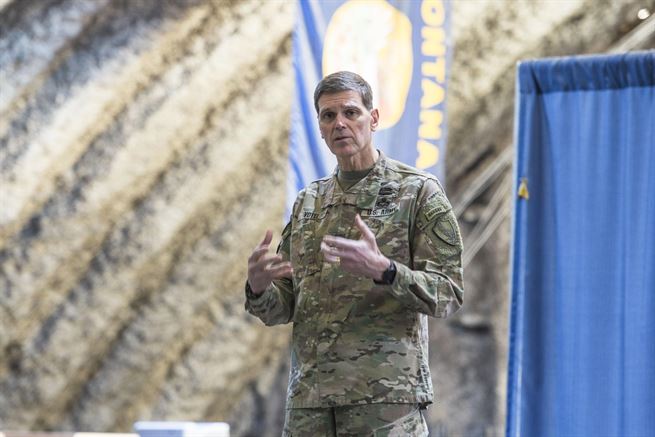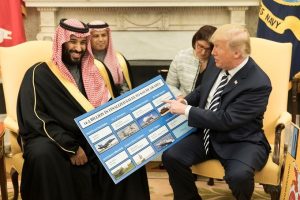by Thomas W. Lippman
One way to understand the depths of the animosity that blew up the myth of brotherhood and cooperation among the monarchies of the Arab Gulf states on Monday is to look beyond the angry statements to a map published recently by the U.S. Energy Information Administration.
The map shows the network of oil and natural gas pipelines that crisscross Qatar, east to west and north to south—except to the border with Saudi Arabia. Qatar, a country with only about 300,000 citizens, is the world’s second-largest exporter of natural gas. Saudi Arabia is one of the world’s largest consumers of natural gas and demand is outpacing supply. Economic logic would dictate that the Saudis purchase gas from their neighbors, fellow Arabs who share the same religious ideology. Instead, the Qataris have invested billions to create facilities to liquefy their gas and export it to Europe and Asia, while the Saudis have invested billions in an effort to increase domestic supply.
Officials from both countries have acknowledged that extension of Qatar’s pipeline network across the border to link up with distribution lines in Saudi Arabia would be economically beneficial. But according to independent energy analysts it has never been seriously contemplated because the two regimes mistrust each other; the Saudis don’t want to be dependent on Qatar for a commodity that they see as the key to their industrial future; and the Qataris—who get most of their gas from one immense field shared with Saudi Arabia’s most feared regional and religious rival, Iran—do not want to be dependent on Saudi Arabia as a customer.
All six Arab monarchies on the Gulf coast are members of a regional alliance known as the Gulf Cooperation Council (GCC). But Qatar has often been at odds with the others over its policies toward Iran and its tolerance of some religious groups such as the Muslim Brotherhood that the others regard as dangerous extremists. In the past those differences have usually been papered over, as they were most recently at President Trump’s anti-terrorism summit conference in Riyadh last month. But this latest break is by far the most serious and has implications far beyond the Gulf.
U.S. Security Interests
Saudi Arabia and the GCC countries that joined in cutting all ties to Qatar on Monday—Bahrain and the United Arab Emirates–are all integral to U.S. strategic planning in the region and to U.S. efforts to curtail Iran’s regional ambitions. Egypt and Yemen, non-GCC military partners of the United States, also cut ties to Qatar.
In March, Gen. Joseph L. Votel, commander of the U.S. Central Command, told Congress in his annual Posture Statement that “The Gulf States are among our best partners in the region. The Gulf Cooperation Council’s (GCC) willingness to provide basing and access for U.S. forces is crucial to our ability to operate militarily” in Centcom’s area of responsibility. That area includes the Gulf, as well as Egypt—which joined Saudi Arabia and its local allies in cutting off Qatar—and Iraq and Iran. Qatar, Votel reported, hosts more than 10,000 U.S. and Coalition service members at Al-Udeid Air Base, home of USCENTCOM’s Forward Headquarters as well as our air component, U.S. Air Forces Central Command (AFCENT), and its Combined Air Operations Center (CAOC). Qatar’s Armed Forces also continue to support external operations in Syria and Yemen. In Syria, given their relationships with a wide range of actors, including more moderate elements, the Qataris are well-positioned to play an influential role in facilitating a political resolution to the conflict.”
And after President Trump’s visit last month to Saudi Arabia, where he met with the GCC leaders, the United States and the GCC proclaimed that
The leaders renewed their determination to continue joint efforts to combat terrorism, eliminate its organizations, prosecute its members, and dry up its sources of funding. They also stressed the importance of working together to confront terrorist threats and combat terrorism financing, with more measures, including protecting infrastructure facilities and enhancing border and aviation security. The United States welcomed the establishment of the Islamic Military Alliance to Fight Terrorism, founded by Saudi Arabia, as part of the global fight against terrorism.
And they reaffirmed their determination to stand united against
Iran’s interference in the internal affairs of the countries of the region, in violation of the sovereignty of the GCC States, and its attempt to spread division and stir sectarian strife among their citizens, including in the Kingdom of Bahrain, by supporting violent extremists, training proxies, smuggling weapons and explosives, inciting sectarian strife, and making statements at various levels to undermine security, order and stability.
In effect, they all lined up behind positions taken by Trump and the Saudis.
There is no way to maintain that veneer of unity after the latest round of charges and counter-charges. As Mehran Kamrava of Georgetown University’s Qatar campus wrote Monday,
The unprecedented level of anger and acrimony directed at Qatar by Saudi Arabia and the United Arab Emirates has caught everyone by surprise. Diplomatic spats in the Middle East are nothing new and, over the years, the Gulf Cooperation Council has had its fair share of squabbles and disagreements. But this time around, the vehemence of efforts to isolate and marginalize Qatar by Saudi Arabia and the UAE, and the speed and scope of such efforts, are nothing less than shocking.
The United Arab Emirates is trying to undermine Qatar not just over the Iran issue, Kamrava said: the UAE wants to augment its already close strategic ties to the United States by persuading Washington to move its military facilities in Qatar to the UAE.
History of Conflict
The Arab states of the Gulf are all hereditary monarchies that share a language, a religion, and a history. But they differ greatly in size, wealth, and regional outlook. They formed the GCC in 1981 to present a united front of Sunni Muslim monarchies against Shia Iran, where the monarchy had been overthrown in the revolution of 1979. But as the group’s charter makes clear, it is primarily an economic and political organization. It has never formed an effective military alliance under a joint command, mostly because the five smallest members fear domination by Saudi Arabia. When Gen. David Petraeus was Centcom commander, he said at a conference in Bahrain in 2009 that the six were not going to achieve military unity or a common defense strategy because of “some friction, to put it mildly, between a number of the different countries.” That friction has only been exacerbated by the conflicts in Yemen and Syria, where Saudi and policies have not always squared with the others.
The differences broke into the open in 2014 when Saudi Arabia, the UAE and Bahrain pulled their ambassadors out of Doha because of disputes over Iran, the 2013 military coup in Egypt, and the Muslim Brotherhood. Eventually the ambassadors went back, and the GCC countries all participated at some level in regional security conferences sponsored by the Obama administration. In December, King Salman of Saudi Arabia was welcomed in Doha for a state visit. It may be far more difficult to get past the latest split.
This Week’s Breach
It began shortly after the Riyadh summit when statements attributed to Qatar’s Emir Sheikh Tamim—in which he reportedly expressed support for Iran, Hamas, Hezbollah, and Israel—appeared on an official Qatari news site. The comments were quickly taken down and the government disavowed them, blaming hackers. It was clear from many commentaries in the region that few if any officials or analysts believed that.
Then the e-mail account of the UAE’s influential ambassador to the United States was hacked. According to Georgetown’s Kamrava, the purloined messages indicated that “in addition to the millions the ambassador has spent on philanthropy in the United States, generous sums of money have gone from the UAE to American think tanks with the stated goal of painting negative portraits of Qatar and Iran before American and global audiences.”
On Monday, the Saudis and their partners took strong action. They severed diplomatic relations with Qatar, closed their embassies, expelled Qatari citizens, and severed air connections, disrupting travel throughout the region. They even booted some 1,000 Qatari troops that were fighting alongside them as part of the Saudi-led coalition in Yemen. Their actions cut Qatar’s only land border, although maritime traffic was apparently not affected. Speculation in the regional press immediately turned to the potential impact on the world’s most popular sporting event, soccer’s World Cup tournament, which is scheduled to be held in Qatar in 2022.
In remarkably tough language, the Saudis said they had
taken this decisive decision as a result of grave violations being committed by the authorities in Doha over the past years in secret and public aiming at dividing internal Saudi ranks, instigating against the State, infringing on its sovereignty, adopting various terrorist and sectarian groups aimed at destabilizing the region including the Muslim Brotherhood Group, Daesh (ISIS) and Al-Qaeda, promoting the ethics and plans of these groups through its media permanently, supporting the activities of Iranian-backed terrorist groups in the governorate of Qatif of the Kingdom of Saudi Arabia and the Kingdom of Bahrain, financing, adopting and sheltering extremists who seek to undermine the stability and unity of the homeland at home and abroad, and using the media that seek to fuel the strife internally; and it was clear to the Kingdom of Saudi Arabia the support and backing from the authorities in Doha for coup Al-Houthi militias even after the announcement of the Coalition to Support the Legitimacy in Yemen.
Qatar responded that “The measures are unjustified and are based on claims and allegations that have no basis in fact,” according to a report by al Jazeera, which is funded by Qatar. There were reports of panic buying by residents of Qatar because of the border closing, but Qatar is one of the world’s richest nations and can import whatever it needs to stave off shortages.
The Trump administration appears to have been surprised by this breach among its friends in a critical strategic area. It is too soon to know how the Trump administration will react. Secretary of State Rex Tillerson and Defense Secretary Jim Mattis were in Australia when the news broke, and they issued only a bland statement saying anti-terrorism efforts would continue. But it is difficult to envision an effective U.S. role in rebuilding the GCC Humpty-Dumpty.
Photo: Joseph Votel (Centcom).





